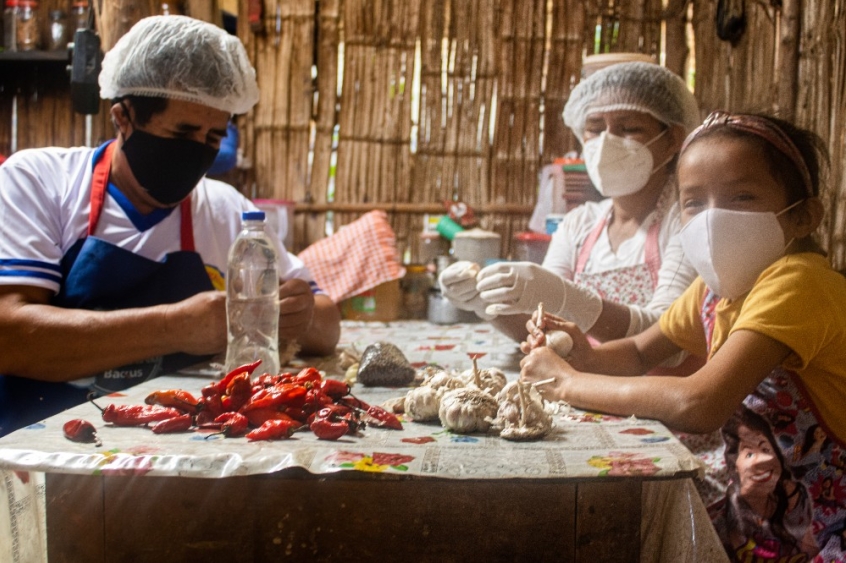
Compassion UK is appealing for more support for children and families living with hunger and malnutrition in the world's poorest communities.
The call coincides with World Hunger Day on Friday and follows a recent report from the UN World Food Programme estimating that 270 million people are at risk of starvation across 20 hotspot countries, including Ecuador, Ethiopia and Burkina Faso.
Compassion is warning that Covid-19 has only exacerbated existing drivers of food insecurity like conflict, weak economies, and climate change.
Many families have lost their income because of the pandemic, while 370 million children have been unable to attend school - meaning they are missing out on the free meals they would normally receive there.
Compassion, which is working through local partners in some of the hotspot countries highlighted by the UN, says that food insecurity will have a "domino effect" on children's health and education unless their families receive holistic support to help them out of poverty.
Sidney Muisyo, Vice President of Global Program said, "At a time when developed nations like the UK are beginning to recover from the virus, I fear they will not respond with urgency to the needs of the rest of the developing world.
"I cannot over-emphasise the urgent need to support humanitarian organisations that work with developing nations, many of whom continue to suffer from the economic impact of the pandemic and many who are stuck in the never-ending cyclical wave of infections.
"These countries need urgent help to overcome the increased poverty leading to hunger and food insecurity amongst the vulnerable populations.
"We must ensure that vulnerable children do not continue to pay the highest and most unacceptable price, such as hunger and disrupted education, as the crises escalate."
Compassion said churches had a "crucial" role to play in providing support at times of crisis.
In Minjar County, Ethiopia, the local congregation stepped in to help farmer Behailu when his crop was facing ruin because of desert locusts.
Behailu, whose daughter is in Compassion's sponsor programme, said, "When friends of my daughter, people I know from the church and the staff, suddenly came to my farm, I couldn't believe my eyes.
"They were literally a God-send. They didn't only save my family from hunger; they also prevented a possible bankruptcy, since I wouldn't have anything to pay the land rent if I didn't have any crops to sell."
Muisyo concludes, "Such massive and complex issues can be overwhelming, but we have the perfect, God-designed strategy to face these emerging challenges – the local church partners who continue to serve in their communities. At Compassion, we believe in empowering the local communities, as these are the best placed to meet the need of children and youth in powerful, yet contextualised, ways."













